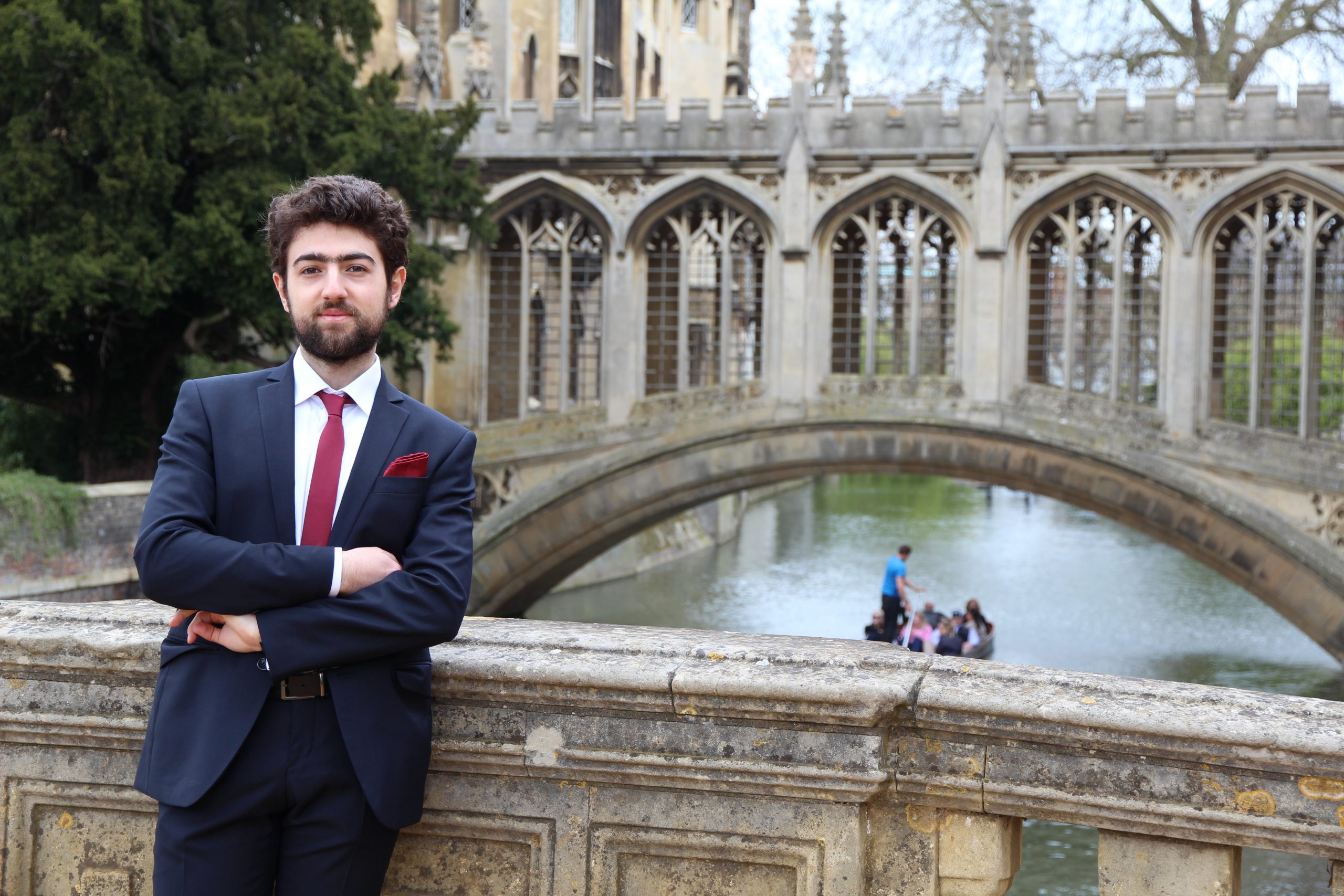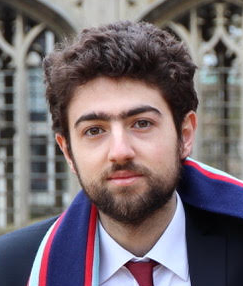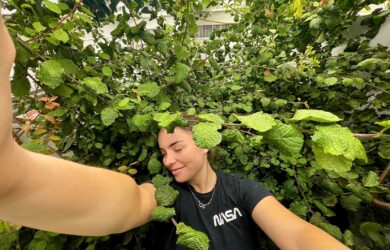
Hayk Saribekyan talks about his research on distributed computing and how it could eventually be applied to biological systems.
Information can be encoded in molecules, which then undergo a series of reactions that can be thought of as computation. This type of computation can be useful for tasks requiring ‘parallelism’ - a type of computation in which many calculations or the execution of processes are carried out simultaneously.
Hayk Saribekyan
Technology is evolving fast and it is only fairly recently that rapidly increasing speeds in communication networks have allowed the field of distributed computing to flourish. Distributed computing allows the resources of a large number of computers in a network to work together to tackle computational problems that would otherwise be impossible to solve. Examples include the the bitcoin network where the monetary transactions created by individuals have to be spread to all nodes in the network as quickly as possible.
Hayk Saribekyan's research draws parallels between distributed computing and biological systems, such as ant colonies, where individuals communicate and try to solve common tasks. His PhD focuses on designing methods to improve the speed at which information is spread in networks and analysing their efficiency.
Using mathematical models he will try to see what are good algorithms for managing information efficiently. He is hopeful that one day his theoretical work can also be used to understand complex biological and chemical systems. He says: “Information can be encoded in molecules, which then undergo a series of reactions that can be thought of as computation. This type of computation can be useful for tasks requiring ‘parallelism’ – a type of computation in which many calculations or the execution of processes are carried out simultaneously.”
Hayk [2017] is the first Gates Cambridge Scholar from Armenia and is keen to give back to his country. At MIT where he did his undergraduate studies, for instance, he became involved in the MIT International Science and Technology Initiatives [MISTI] programme. It has a global teaching lab [GTL] initiative which sends MIT students to teach in high schools around the world. Hayk taught in a high school in Italy in his second year and thought it would be good to have a similar programme in Armenia. With the support of the Luys Foundation in Armenia, he helped to launch a GTL programme in his home country in 2015 and also taught on it in 2016.
School
Hayk came to Computer Science as a result of his experience at his secondary school. After having grown up in a village in Armenia until he was 10, he and his brother were enrolled at one of the best schools in the capital Yerevan. Both his parents and older brother had a background in applied mathematics so it was not surprising that he grew up with an early interest in mathematical and technical subjects. Computer Science was therefore a good fit for him and his school was more innovative than most in Armenia, particularly when it came to informatics. It was one of the first schools in the country to teach computational thinking to young children using a game-like programming language developed at MIT. Hayk took classes in informatics from age 11. “I liked to build things and through programming I could build software,” he says. “There was a lot of support for informatics at the school. It was a wonderful environment to grow up in.” The school had such an impact on his subsequent career that every time he goes home he visits it.
When he left school where he graduated with the best marks in informatics, Hayk never considered doing anything other than Computer Science. While he was at school he had entered several international Olympiads in science subjects and met and was mentored by students who went to top universities, including MIT. That broadened his outlook when it came to deciding where to apply for his undergraduate studies. He opted for MIT where he was given almost full financial support.
MIT
During his five years at MIT, where he completed an undergraduate and masters in Computer Science, he did various internships and spent his third year at St John’s College in Cambridge where he is now based. In his last two years at MIT he was involved in research in connectomics, a branch of computational neuroscience. Connectomics aims to understand the nanoscale structure of the nervous system from high resolution electron microscopy images of brain tissue. The field was founded in the 1980s when work was done on the nervous system of a worm, but has progressed rapidly in recent years due to technological advances. Its findings may have medical applications in neurology as well as help us understand the process of learning and memory. The brain images that Hayk was working with allowed him to see every cell in a particular part of a mouse’s brain. “We were using machine learning techniques to try to map the structure of the brain at nanoscale,” he says.
From MIT, Hayk applied to Cambridge after his earlier experience at St John's, but before he arrived he spent the summer doing an internship at INRIA – the French Institute for Research in Computer Science and Automation – working on distributed computing, the subject of his PhD. He says that after his studies finish he would like to stay in academia, but also to maintain a professional connection with Armenia.

Hayk Saribekyan
- Alumni
- Armenia
- 2017 PhD Computer Science
- St John's College
I grew up in a village not far from the capital of Armenia, Yerevan. At the age of ten, my parents transferred me to one of the best schools in the country - Quantum, where I was given many opportunities to go beyond the normal classwork. I developed great interest in computer science and mathematics, and participated in numerous science competitions. The highly motivating environment in school helped me to eventually start an undergraduate degree at MIT. I immediately chose to study my favourite subject: computer science. Besides my own studies, I have always been interested in teaching myself. At MIT through the Global Teaching Labs program, I taught a month-long computer science course in a high school in Italy. Two years after that we were able to bring the program to my home country, Armenia, where I also taught. In the last two years at MIT, I was involved in research in computational connectomics, a branch of neuroscience that aim to understand the low level structure of the brain and how it "computes." I am excited to undertake doctoral studies in Computer Science at the University of Cambridge, explore what are the limits of randomised distributed computation models, and how we can use distributed computing to model natural processes.
Previous Education
Massachusetts Institute of Technology












